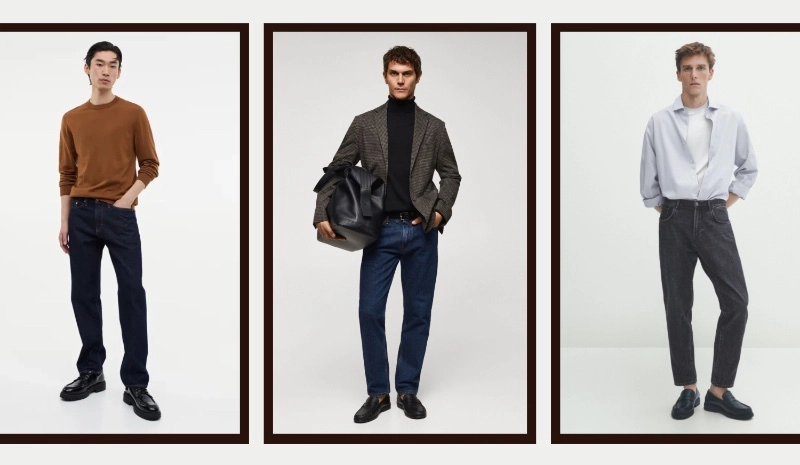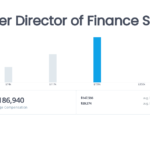Are Jeans Business Casual The line between professional and casual attire in the workplace has blurred significantly over the years. Once upon a time, suits and ties or pencil skirts and blazers were the norm in most office settings. Now, with the rise of tech startups, remote work, and modern workplace culture, the concept of “business casual” has evolved. One item of clothing often at the center of this discussion is jeans. This leads us to the all-important question: Are jeans business casual?
In this article, we’ll explore the nuances of this question, provide insight into when and how jeans can be styled for business casual environments, and help you decide if jeans are an appropriate choice for your workplace.
What Does Business Casual Mean?
To understand if jeans fit into the business casual category, it’s essential to first define what business casual means. Traditionally, business casual is a dress code that offers a balance between professional and casual attire. It allows employees to dress comfortably while still maintaining a polished and professional appearance. Common business casual staples include:
- Button-up shirts or blouses
- Slacks or khakis
- Cardigans or blazers
- Closed-toe shoes such as loafers or flats
What’s noticeably absent from the traditional business casual wardrobe is denim. Jeans were historically considered too informal for professional settings. However, times are changing, and many workplaces have begun to embrace jeans as an acceptable part of business casual attire—provided they meet certain criteria.
Are Jeans Business Casual? It Depends on the Workplace
The answer to whether jeans are business casual ultimately depends on your workplace culture and dress code. Here are some factors to consider:
1. Industry Norms
- In industries like tech, creative agencies, or startups, jeans are often a staple of the business casual wardrobe. Employees in these industries prioritize comfort and creativity over strict dress codes.
- On the other hand, more traditional industries like finance, law, or government may require a stricter interpretation of business casual, where jeans are not acceptable.
2. Company Culture
- Casual Fridays have paved the way for more leniency in dress codes across various companies. Many organizations now allow jeans, particularly darker or more tailored styles, as part of business casual attire.
- Before wearing jeans to work, check your employee handbook or observe how your colleagues dress to gauge whether denim fits the company culture.
3. Client-Facing Roles
- If your role involves meeting with clients or external stakeholders, jeans might not always be appropriate. First impressions matter, and wearing formal business attire might be expected in such situations.
What Kind of Jeans Are Considered Business Casual?
Not all jeans are created equal, and if you want to incorporate denim into your business casual wardrobe, it’s important to choose the right style. Here’s a breakdown of what makes jeans acceptable for business casual settings:
1. Dark Wash Jeans
- Dark wash jeans are the go-to option for a business casual look. Their deep color appears more polished and professional than lighter washes.
- Avoid distressed or faded jeans, as they can appear too casual for the workplace.
2. Tailored Fit
- Opt for slim, straight-leg, or bootcut styles rather than baggy or skinny jeans. Tailored fits give a cleaner and more professional appearance.
- Jeans with rips, holes, or frayed hems are a definite no in a business casual environment.
3. Minimal Details
- Look for jeans with minimal embellishments. Pockets should be subtle, and stitching should be understated.
- Avoid jeans with logos, patches, or excessive designs, as these can make your outfit appear too casual.
4. Solid Colors
How to Style Jeans for a Business Casual Look
Once you’ve selected the right pair of jeans, the next step is styling them appropriately. Here are some outfit ideas to help you pull off jeans in a business casual setting:
1. Pair Jeans with a Blazer
- A structured blazer instantly elevates a pair of jeans, making the outfit look more polished. Choose a neutral-colored blazer and pair it with a button-up shirt or blouse for a sharp business casual look.
2. Button-Up Shirt and Jeans
- A classic button-up shirt tucked into dark wash jeans creates a clean and professional appearance. Add a belt and dress shoes to complete the outfit.
3. Sweaters or Cardigans
- Layering a sweater or cardigan over a collared shirt is another great way to style jeans for the workplace. This combination strikes a balance between comfort and professionalism.
4. Shoes Matter
- Footwear can make or break your business casual outfit. For jeans, stick to polished shoes like loafers, oxfords, ballet flats, or ankle boots. Avoid sneakers, sandals, or overly casual footwear.
When Are Jeans Not Business Casual?
While jeans can work in many business casual environments, there are certain situations where they should be avoided altogether. These include:
- Formal Meetings or Events: If you’re attending a conference, meeting with senior executives, or participating in a formal event, opt for traditional business attire.
- Dress Code Policies: If your company explicitly prohibits jeans, it’s best to adhere to the dress code guidelines.
- First Impressions: If you’re new to a job or attending an interview, it’s safer to err on the side of caution and avoid wearing jeans until you understand the company culture.
The Pros and Cons of Wearing Jeans as Business Casual
Let’s weigh the advantages and potential drawbacks of incorporating jeans into your business casual wardrobe:
Pros:
- Comfort: Jeans are undeniably more comfortable than slacks or trousers, especially when sitting for long hours.
- Versatility: Dark wash jeans can easily transition from workwear to casual wear, making them a practical wardrobe staple.
- Modern Appeal: Wearing jeans can project a modern and approachable image, especially in creative or tech-focused industries.
Cons:
- Perception: In some workplaces, jeans may still be perceived as too casual or unprofessional.
- Style Restrictions: Not all jeans are appropriate for the workplace, which limits your options.
- Risk of Misjudgment: Wearing jeans in a formal or traditional setting can send the wrong message about your professionalism.
Tips for Deciding If Jeans Are Business Casual at Your Workplace
If you’re unsure whether jeans are acceptable in your workplace, here are some tips to guide you:
- Observe Your Colleagues: Take note of what others in your office wear. If you see coworkers regularly wearing jeans, it’s likely acceptable.
- Review the Dress Code: Check your company’s employee handbook or ask HR for clarification on dress code policies.
- Test the Waters: Start with a pair of dark, tailored jeans paired with professional attire like a blazer. Gauge the reaction and adjust accordingly.
Conclusion: Are Jeans Business Casual?
So, are jeans business casual? The answer lies in a combination of factors, including your workplace culture, industry norms, and how you style them. In many modern workplaces, particularly those with more relaxed or creative environments, jeans can absolutely be considered business casual—provided they are dark, tailored, and paired with professional attire.
However, it’s important to recognize that not all workplaces view jeans the same way. When in doubt, err on the side of caution and choose more traditional business casual attire. By understanding your workplace and making thoughtful style choices, you can confidently incorporate jeans into your professional wardrobe without compromising your image.



